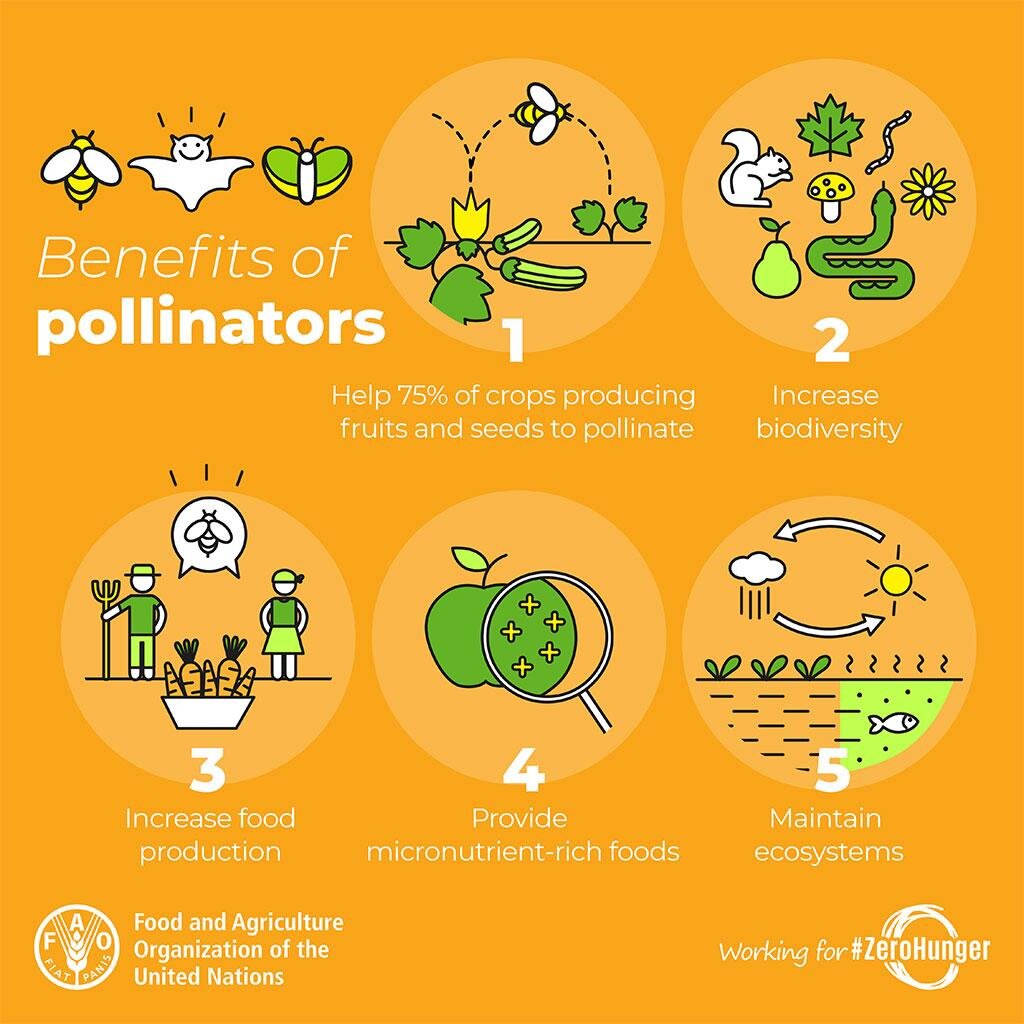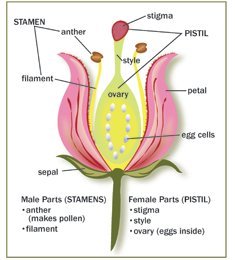Biodiversity & Environment
Pollinator Week
- 26 Jun 2020
- 4 min read
Why in News
Pollinator Week is celebrated from 22nd June to 28th June every year.
- It was initiated by the non-profit Pollinator Partnership and the USA’ Senate in 2007.
Key Points
- According to the Food and Agriculture Organization (FAO), bees being the dominant pollinators, have around 25,000-30,000 species.
- More than 180,000 plant species, including 1,200 crop varieties, across the world, depend on pollinators to reproduce.
- Declining Numbers:
- Around 40% of invertebrate pollinator species, particularly bees and butterflies, face extinction across the world.
- In India, wild honeybees of the genus Apis, including the Asian bee and the little bee, have declined steadily for the past 30 years.
- Around 16.5% of vertebrate pollinators are threatened with extinction.
- Of these, 45 species of bats, 36 species of non-flying mammals, 26 species of hummingbirds, seven species of sunbirds and 70 species of passerine birds face extinction.
- Reasons for the Decline: Most of them are the result of an increase in human activities:
- Land-use change and fragmentation.
- Changes in agricultural practices including the use of chemical pesticides, fungicides and insecticides.
- Change in the cropping pattern and crops like the cultivation of Genetically Modified Organisms (GMOs) and mono-cropping.
- High environmental pollution from nitrogen and heavy metals.
- Growth of invasive alien species.
- Higher temperatures associated with climate change.
- When a pollen grain moves from the anther (male part) of a flower to the stigma (female part), pollination happens and it is the first step in a process that produces seeds, fruits, and the next generation of plants.
- This can happen through self-pollination, wind and water pollination or through pollinators.
Pollinators
- Vectors that move pollen within the flower and from flower to flower are called pollinators.
- They visit flowers to drink nectar or feed off of pollen and transport pollen grains as they move from spot to spot.
- There are two categories of pollinators:
- Invertebrate pollinators: Include bees, moths, flies, wasps, beetles and butterflies.
- Vertebrate pollinators: Include monkeys, rodents, lemurs, tree squirrels and birds.
Way Forward
- Pollination contributes to one-third of the world’s agricultural crop production and pollinators can increase crop yield by 24% in small diverse farms and its reduction can pose an immediate threat to mankind’s food and nutrition.
- People should leave some areas under natural habitation, promote hedgerows, flower trees and shrub plant diversity, intercropping and try to be less dependent on toxic chemicals and pesticides.
- Governments should take proactive steps for bee conservation, recognise apiculture (bee-keeping) as a subject for advanced research and promote it among farmer communities as an additional source of livelihood, which will be a win-win situation for both the bees and humans.






